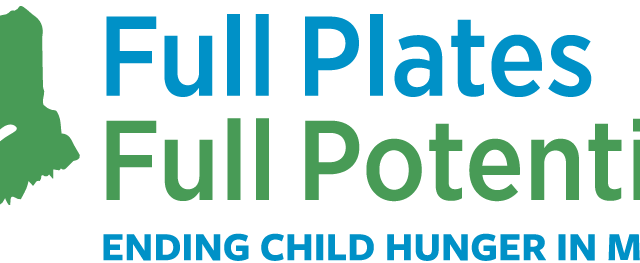
Want fewer Maine kids to go hungry? Expand state child tax credit and SNAP benefits
By Anna Korsen
As a state-wide nonprofit working to address childhood food insecurity, we know all too well that Maine has the highest rate of childhood food insecurity in New England, with at least one in six kids lacking consistent access to nutrition. Food insecurity during critical developing years too often leads to poor health and overall negative lifetime outcomes for children, resulting in high costs to society.
Fortunately, there are opportunities this legislative session to help reduce Maine’s unacceptably high rate of childhood food insecurity, including through legislation that would expand our state’s child and dependent tax credit and increase SNAP benefits.
The proposed expansion of Maine’s child tax credit being considered by the Legislature would reduce food insecurity among families and lift 3,500 Maine children out of poverty, according to the Center on Poverty and Social Policy. Increasing SNAP benefits for Maine families would reduce the burden on the charitable food system and support households to keep groceries on the shelves.
During the pandemic, we saw the efficacy of federal, temporary programs to address poverty and food insecurity, including expanding the child tax credit, strengthening SNAP and providing school meals at no cost to all students. These supports were lifelines for Maine families, reducing child poverty by 14 percent, increasing school meal access by over 300 percent, and reducing food insufficiency by 10 percent. Nearly 125,000 Maine families with low incomes used their child tax credit for basic needs, including food. Nearly half of kids from families with low income in Maine were temporarily lifted above the poverty line.
Unfortunately, the expanded child tax credit, increased SNAP benefits and school meals at no cost for all students were rolled back at the federal level even though economic instability, poverty and hunger persist. As the expanded child tax credit and increased SNAP ended, six times more families in Maine reported food insecurity and families are falling back into poverty. Food pantries across our state are reporting empty shelves due to an increase in demand, especially among households with children.
When the federal government ended the temporary program that provided school meals at no cost to all students, Maine stepped in to make sure no child would go hungry at school by passing state legislation that keeps this critical policy in place. We are again faced with the opportunity for Maine to lead the way through passing and funding LDs 1544 and 1584.
LD 1544 would expand the state’s child and dependent tax credit to make sure Maine children and their families have access to basic needs like food, clothing, shelter and utilities. LD 1584 would create a state SNAP supplement so that no household will receive less than $95 a month to purchase groceries. These solutions are critically important now, as inflation continues to keep food prices high and children are about to lose access to school breakfast and lunch with schools closing for the summer.
Investing in basic needs for children and their families through LDs 1544 and 1584 is not only the right thing for families, it has a significant return on investment for Maine’s future, in the form of better educational and health outcomes. Economists estimate that the expanded child tax credit created a 1,000 percent return on investment (about $10 in societal benefits for every $1 spent), and that every dollar redeemed through SNAP generates a $1.70 in economic activity
The positive impact of an expanded child tax credit and increased SNAP benefits would be particularly felt in Maine’s rural areas, which have disproportionately high rates of child poverty and food insecurity. In rural Maine counties like Aroostook, Piscataquis, and Washington, closer to 1 in 5 children face food insecurity.
Maine has the opportunity to be a leader in its commitment to reducing child poverty and food insecurity in Maine through LDs 1544 and 1584. With these bills, we can help our kids, communities and economy flourish.
Korsen is the policy and program director with Full Plates Full Potential, a nonprofit working to end child hunger in Maine.